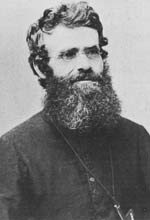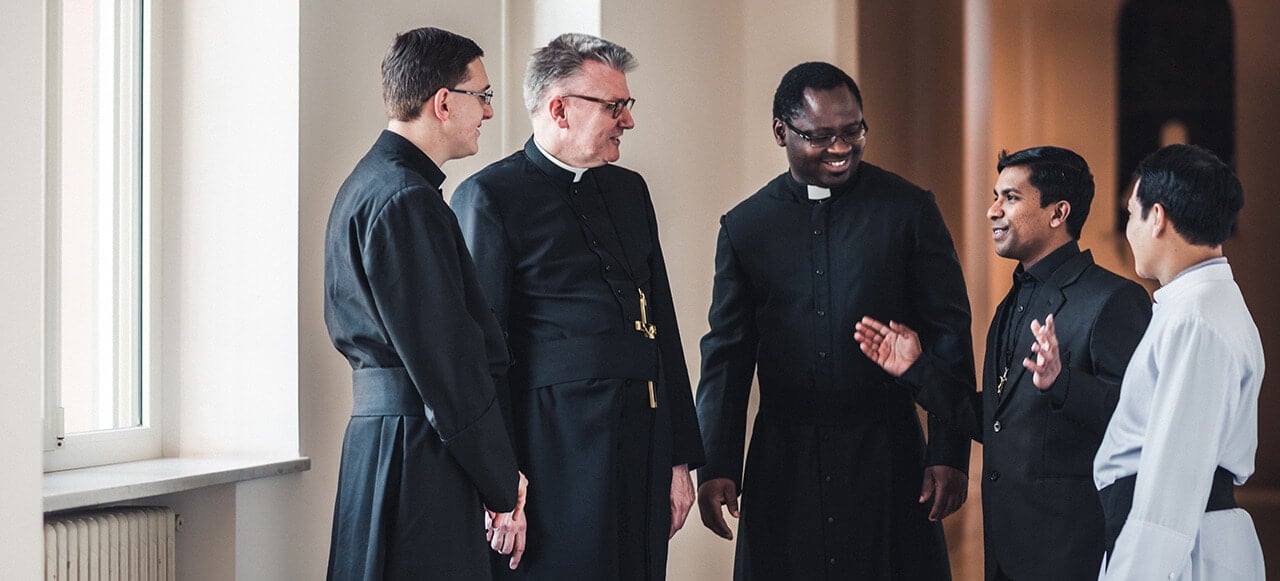
Joseph GÉRARD
Joseph Gérard, the apostle of the Basutos, was born in Lorrain, on March 12, 1831.While yet a child, he tended his father’s sheep, “all the while chit-chatting with God” in the manner of Jean-Marie Vianney. After hearing a missionary conference by Father Nicolas Laverlochère, he entered the Oblates on May 10, 1852. At that time, the same Oblates accepted the missions in Natal. Bishop de Mazenod decided that young Brother Gérard would be a choice companion for Bishop François Allard, the Vicar Apostolic. At first, the missionaries experienced a series of failures as they approached the Zulus. It was not until 1862 that Moshesh, king of Basutoland, gave them permission to settle in the Valley of Roma.
For fifty-two years, the ardent Father Gérard traveled all over this land to ease the burden of the poor, heal the sick, instruct the shepherds, disconcert the sorcerers, found parishes and establish schools. At certain times, he accomplished extraordinary actions that could pass for miracles. His reputation as a “holy man” spread in all the villages. He is called “Ramehlolo” the “father of miracles”. Ever since his death, on May 29, 1914, Christians have been in the habit of making a pilgrimage to his burial place and returning with a bit of the soil which is deemed miraculous.
With age, Father Gérard’s eyesight began to fail gradually. The recitation of his Breviary was getting more difficult. As he spent his days first of all visiting the sick and teaching catechism to the shepherds most of the time he must recite his office by the light of a dim candle. Unfortunately, at times he fell asleep. More than once the flame touched a lock of his hair. Wanting to do better, he tried all kinds of means to avoid sleep while he was praying. The Oblates of Lesotho still remember that Christmas night, when Father Gérard’s ingeniousness triumphed over his tiredness.On that night, once the ceremonies has ended and the newly baptized sent home to rest, the old man lit his candle and began to pray on his knees in the sanctuary. But soon his head becomes heavy and the candle flickers. He wakens with a start! To stay awake, he decided to pace with short steps in the narrow aisle of the chapel. The “man of God” then takes his candlestick in one hand, and his breviary in the other and he begins to ambulate in the silence of the night. But the candlestick is heavy while the prayer book is cumbersome with its fine print. Trouble was inevitable. The candle toppled to the floor and the prayer book ended under the pews. The only thing to do was to relight the candle, recover the breviary, gather the holy card scattered here and there, regain the sanctuary and start all over.
All of a sudden, a bright idea crossed his mind. Right there, next to the altar, was an old barrel organ which could still play out old hymns. Why not use it to ward off sleep? The Oblate then drew a chair on which he placed his breviary and the candle. He knelt between the chair and the antique musical instrument. All was now ready… A few turns of the handle and he returns to the psalmody more or less in cadence with the variety of musical sounds. All was proceeding well when the door of the oratory suddenly opened and a native, who had been baptized that morning advanced with arms extended.
André DORVAL, OMI
